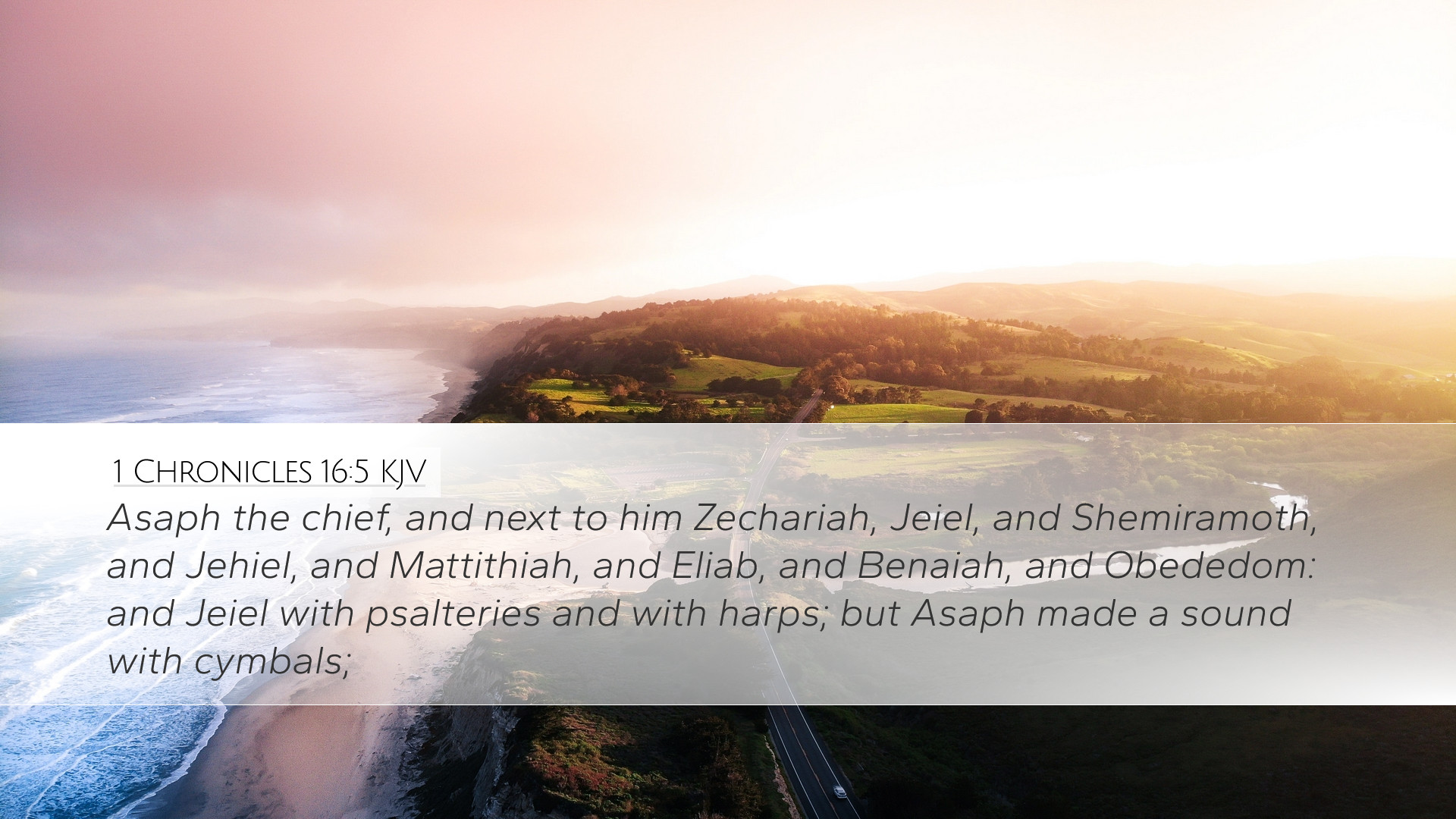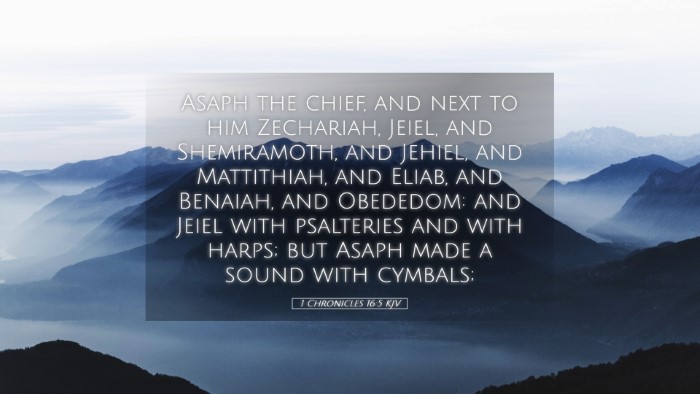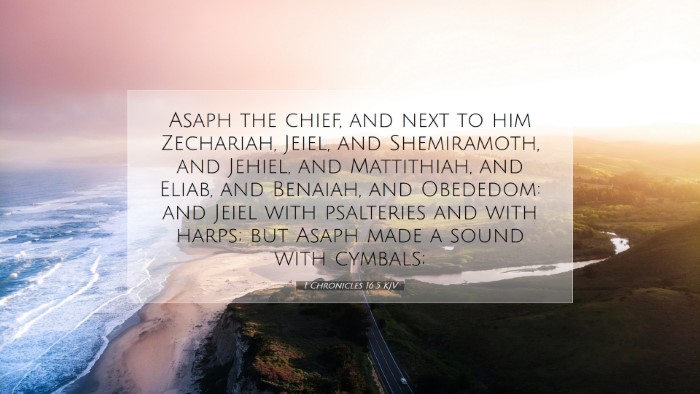Commentary on 1 Chronicles 16:5
1 Chronicles 16:5 introduces us to the important roles played by the Levites in the worship of Yahweh. This verse highlights the appointment of specific individuals to lead in worship and praise, reflecting a structured approach to ceremonial reverence and communal worship in the early Israelite society. Such organization was crucial for maintaining the worship practices that God intended for His people.
Leadership in Worship
The verse mentions Asaph and others as appointed to lead the worship service, indicating that worship was not a spontaneous act but rather a structured event involving designated leaders and musicians.
-
Asaph: Known as a prominent musician and prophet, Asaph's role emphasizes the importance of music in worship. Matthew Henry notes that music is a significant component of praise, serving to uplift the spirit and glorify God.
-
Other Leaders: The presence of additional figures underscores the collective effort in worship. Albert Barnes emphasizes that the diversity of roles indicates the richness and variety that God desires in the worship experience.
The Role of Musicians
Music in Biblical worship has deep roots and symbolizes a means of connecting with God. Adam Clarke points out that the original Hebrew word for praise often refers to a musical context, asserting that music is more than mere entertainment – it is foundational to spiritual expression and communal identity.
The Levites' involvement in music and worship as outlined in this text highlights the theology of sacred music, which serves to elevate the congregation toward a divine appreciation of God’s greatness. Clarke elaborates on how the Levites were called to lead not just through voice but also through the instrumentation, indicating a holistic approach to worship.
Theological Implications
This verse serves as a reminder of the nature of God’s holiness and the appropriate response of His people.
-
Holiness of God: The act of praise and worship reflects a recognition of God's majesty and holiness. Matthew Henry comments on how God’s nature demands reverence and dedication from His worshipers.
-
Community in Worship: 1 Chronicles 16:5 reflects the importance of community when engaging in worship. As believers gather to praise, they reinforce their identity as God's people, participating in a collective act ordained by God. Both Barnes and Clarke emphasize the communal aspect of worship, acknowledging its power in binding the people together in devotion.
Application for Modern Worship
Today, this passage can inspire contemporary worship practices, encouraging churches to embrace structured and intentional worship.
-
Leaders in Church: The biblical model showcased in 1 Chronicles 16:5 encourages modern churches to appoint leaders who are spiritually grounded and musically skilled to guide congregational worship.
-
The Role of Music: Just as music was integral to the worship experience for the Israelites, churches today can prioritize music that not only entertains but educates and edifies the congregation, offering a means to express truth and praise.
-
Community Engagement: The passage reminds modern believers of the significance of coming together as a community to worship, as this collective engagement enriches personal faith and strengthens the church body.
Conclusion
In summary, 1 Chronicles 16:5 and its observations laid out by prominent commentators like Matthew Henry, Albert Barnes, and Adam Clarke reveal profound insights into the worship practices of ancient Israel. The roles assigned to leaders, the importance of music, the theological implications regarding the holiness of God, and the communal aspect of worship continue to resonate with modern Christian practices. By reflecting on these truths, pastors, students, theologians, and scholars can deepen their understanding of worship, nurturing a spirit of reverence and communal unity in their own contexts.


